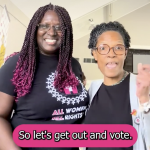START BY TALKING. Either one-on-one with a therapist or counselor (see if your local AIDS service organization can hook you up) or in a support group. In New York City, check out the Substance Abuse Counseling Program at GMHC (212.367.1354); in Chicago, the AIDS Foundation of Chicago (312.922.2322) or The Pride Institute (773.907.4635); in Atlanta, the Integrated Life Center (404.377.5556) or, for women, the Union Mission (404.588.4009).
REDUCE THE HARM. If you’re not ready to stop drugs, at least find out how to lower the risk to yourself and others. The North American Syringe Exchange Network (www.nasen.org or 253.272.4857) and the Harm Reduction Coalition (www.harmreduction.org or 212.213.6376 in New York; 510.444.6969 in Oakland) can connect you to needle-exchange sites.
Injection-drug users: Check out New York City and Oakland Positive Health Project (www.positivehealthproject.org or 212.465.8304), Chicago’s Recovery Alliance (www.anypositivechange.org or 773.471.0999), Los Angeles’ Jump Street (310.855.0031), San Francisco’s Harm Reduction Therapy Center (www.harmreductiontherapy.org or 415.863.4282).
And www.dancesafe.org, www.crystalneon.org (call 206.622.6925) and www.tweaker.org (call 415.502.1999) offer great survival guides for crystal meth and other party-drug users, HIV positive or not.
TAKE A STEP...OR 12. The recovery model that started more than 60 years ago with Alcoholics Anonymous (check your local phone directory or click “Contact Local AA” at www.aa.org for meetings) has become the most widely copied—and the most successful—for addictions of all sorts, including generalized drug addiction (www.na.org or 818.773.9999), cocaine (www.ca.org or 310.559.5833), speed (www.crystalmeth.org or 213.488.4455), pot (www.marijuana-anonymous.org or 800.766.6779) and sex (www.sexaa.org or 800.477.8191, www.sa.org, www.slaafws.org or www.sca-recovery.org).
Meanwhile, www.al-anon.org (888.4ALANON) offers support for addicts’ loved ones. Many cities offer special meetings for women, gays and/or lesbians, people of color and HIVers, but don’t limit yourself: 12-steppers are a welcoming lot who just want to see you get better. It’s also not unusual for drug addicts to go to AA meetings (and, less frequently, vice versa), especially in places where AA predominates. Best of all: 12-step groups offer virtually the only “treatment” that is free for life (except for the suggested $1-per-meeting donation to cover the rent on all those church basements).
Don’t like the 12-step model? Check out these websites: www.smartrecovery.org (440.951.5357) or www.womenforsobriety.org (215.536.8026).
GET TREATED. If you can’t stop with the help of a 12-step or other support group, you may need rehab or medical treatment. Generally, outpatient programs are easier to access and cheaper than inpatient (overnight), which often require a professional referral and aren’t well-covered by insurance. A few treatment programs with a special HIVer focus are: in Los Angeles, Tarzana Treatment Center (www.tarzanatc.org or 800.996.1051), where no one is turned away; in San Francisco, the LGBT-serving New Leaf www.newleafservices.org or 415.626.7000), the Haight-Ashbury Free Clinics (www.hafci.org or 415.487.5634) or Waldenhouse (www.waldenhouse.org or 415.554.1100); in Chicago, Haymarket Center (312.226.7984); in Atlanta, Our Common Welfare (www.ourcommonwelfare.com or 404.297.9588); and in Minneapolis, Dallas, Ft. Lauderdale, Chicago, New York City and New Jersey, the LGBT-serving Pride Institute (www.pride-institute.com or 800.54.PRIDE). For sex addicts, there’s LA’s Sexual Recovery Institute (www.sexualrecovery.com or 310.360.0130).
For a complete listing of treatment programs near you, go to www.findtreatment.samhsa.gov. If you’re uninsured or on Medicaid/Medicare, call the National Substance Abuse Directory at 800.662.4357 and ask for treatment facilities in your area.






Comments
Comments